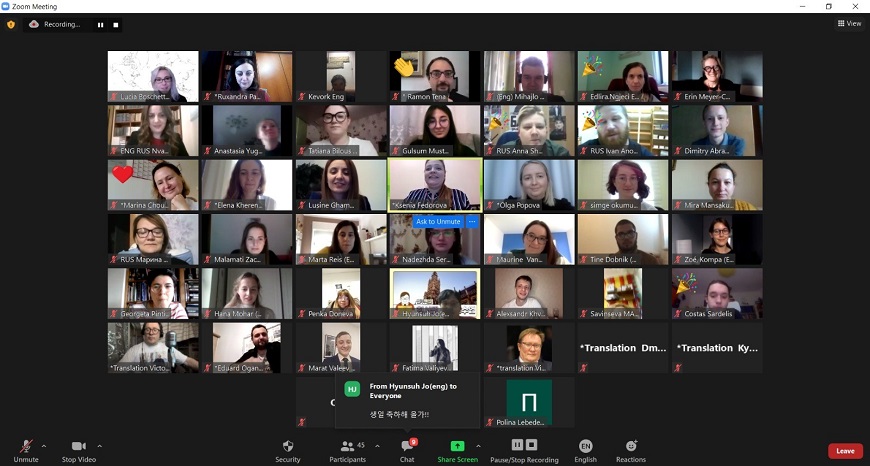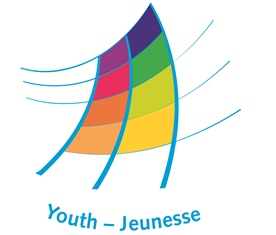The international seminar “Remembrance and Learning from the Second World War” was held online from 14-18 December 2020 and brought together around 50 participants from 23 countries – youth activists and leaders, youth workers and representatives from local and regional authorities, educational advisors from memorial sites, history teachers, young politicians and diplomats.
The seminar, being held for the sixth time but for the first time online, aimed at strengthening the relevance and quality of remembrance activities with young people today, at the occasion of 75 years since the end of the Second World War and marking the 70th anniversary of the European Convention on Human rights.
During the five-day programme the participants learned about the foundation of international organisations following the Second World War, such as the Council of Europe and the United Nations, their policies on citizenship and remembrance education, approaches to history learning and teaching in the Council of Europe and in the Russian Federation, as well as non-governmental initiatives on peace and reconciliation practices.
Participants were engaged in open dialogue with experts on such topics as the right and duty to remember, multiperspectivity and critical thinking in remembrance work with young people, and the programme of confidence-building measures of the Council of Europe.
A large part of the programme was devoted to the connection between human rights and remembrance and the application of human rights education approach to remembrance work with young people.
In addition, participants met with representatives of the German Resistance Museum (Berlin) and the Tolerance Centre of the Jewish Museum (Moscow) where they learned about the museums' approaches to working with the younger generation.
Participants also watched the film "Nuremberg. 70 Years Later" and discussed "the major tribunal of the 20th century" with the film maker.
The participants and co-organisers agreed that this was a highly successful, high quality activity and that most of expected results were achieved.
The seminar formed part of the 2020 Action Plan of the Framework Programme on cooperation between the Council of Europe and the Russian Federation in the field of youth policy, as a contribution to implementing one of the objectives of the Framework Programme – promoting intercultural dialogue, peace-building and cultural diversity.




